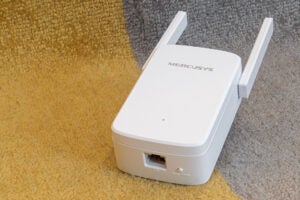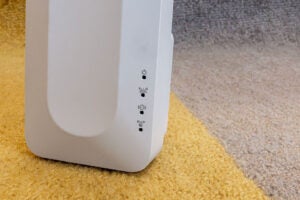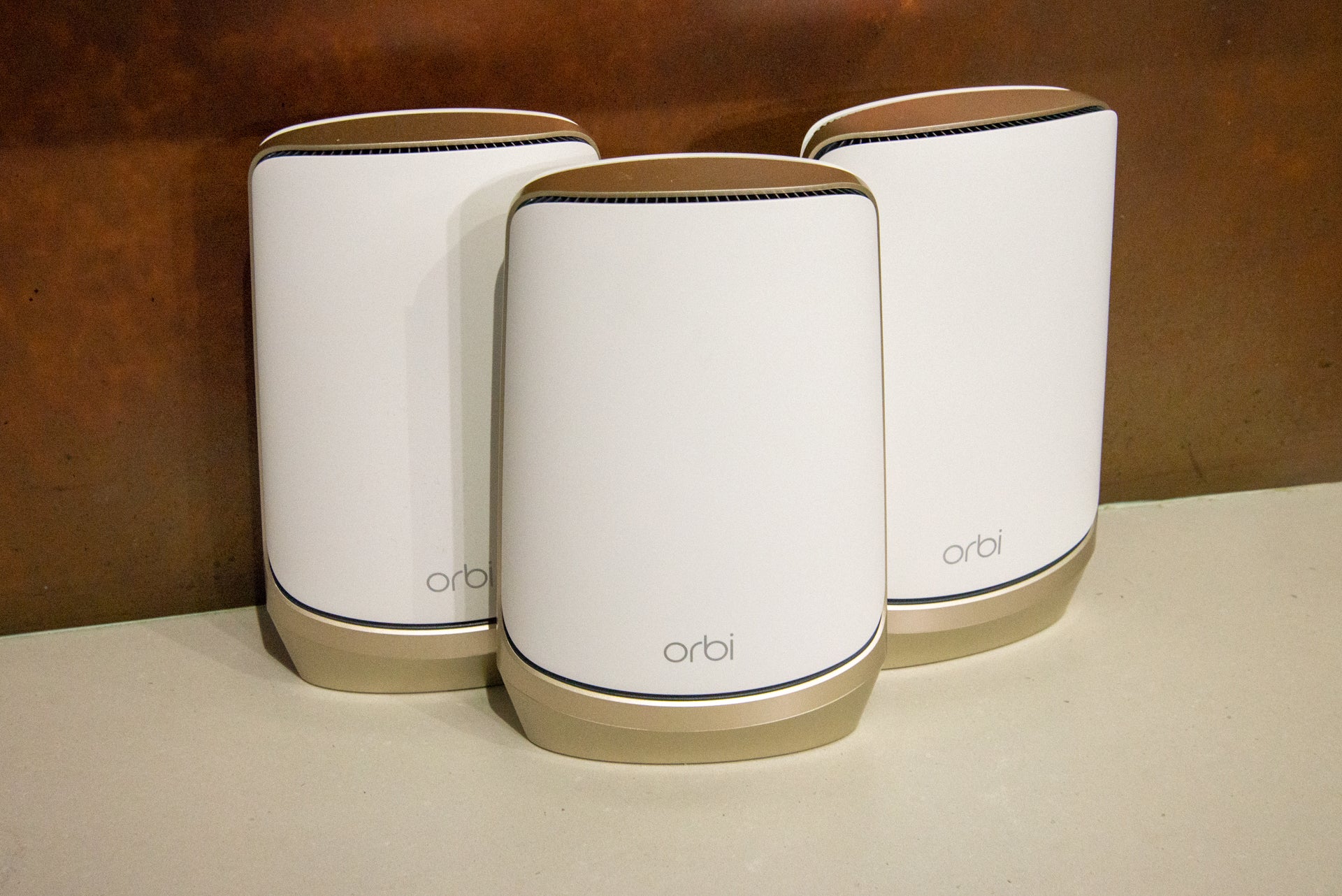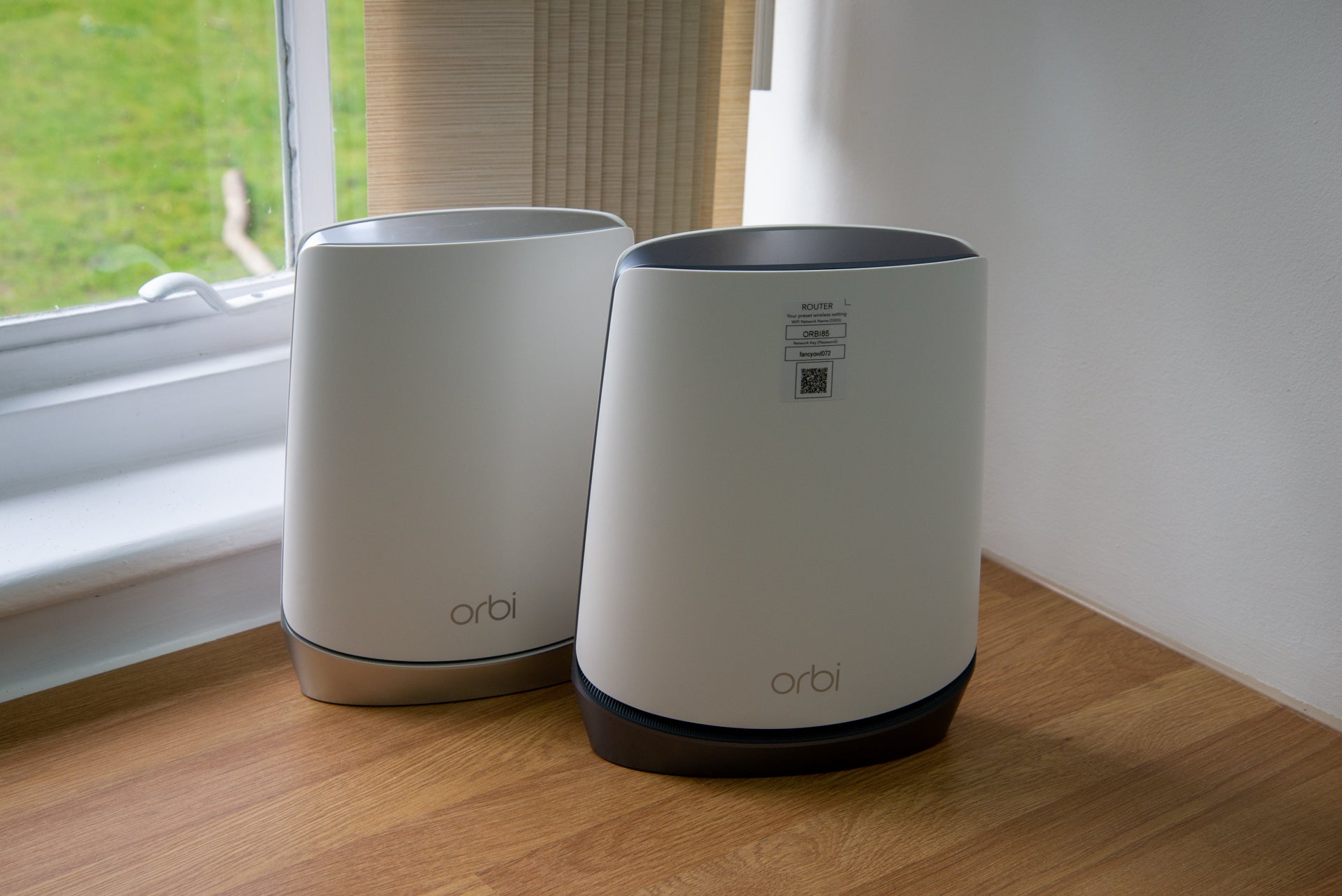Best Wi-Fi Extender 2024: Connect more devices effortlessly
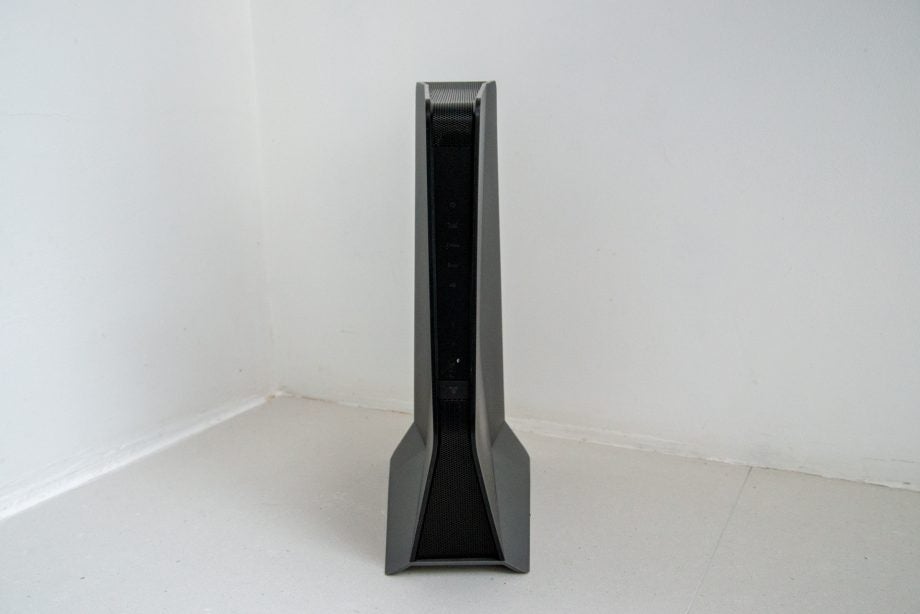
When it comes to boosting your Wi-Fi capabilities without spending an absolute fortune, the best Wi-Fi extenders are well worth picking up.
Let’s face it, with the amount of devices that now require a decent Wi-Fi signal to run efficiently, we’ve all found ourselves uttering grievances at the nearest router at one time or another. Whether it’s for streaming the latest shows and films or dabbling in a bit of online gaming against your friends, a stable Wi-Fi connection is crucial but it can be hampered, particularly if you have a large home and your router has limited range.
For a true high-end remedy, mesh Wi-Fi networks are the ideal option as they are designed to offer the best amount of coverage over a sizeable area. The one problem is that while they are effective, mesh Wi-Fi routers and extenders are quite expensive, putting them out of the realm of affordability for most people.
Luckily for those who want to give their devices a boost on a budget, traditional Wi-Fi extenders are far cheaper. Via a power outlet and an ethernet cable, Wi-Fi extenders are able to provide a stronger connection to your router for the device they’re hooked up to.
They’re a great bit of kit, but there’s also a dizzying amount of choice out there which is where our guide comes into play. The Wi-Fi extenders featured on this page have been subject to our rigorous testing standards, evaluating their range and performance, as well as how easy they are to set up. This ensures that you’ll be getting a great device regardless of which one you decide to buy.
If you think that your initial set-up might need an overhaul then you can also check out our round-ups for the best router and best gaming router. Similarly, if your current workstation is starting to show its age then our best laptop guide can lend a hand.
Best Wi-Fi extenders at a glance
- Best overall: TP-Link RE700X – check price
- Best on a budget: Mercusys ME30 – check price
- Best for speed: Devolo WiFi 6 Repeater 5400 – check price
- Best midrange: Netgear EAX12 Wi-Fi Range Extender – check price
- Best Asus extender: Asus RT-AX59U Extendable Router – check price
How we test
Testing Wi-Fi extenders is all about seeing how they perform in a variety of situations. For that reason, we test them all with a Wi-Fi 6 router. First, we measure throughputs with our router, when connected in different rooms. Then we connect the Wi-Fi extender in different parts of our home, and retest connection speeds to see what improvement we can get.
When rating routers, we take into account price and performance: if you just want to boost Wi-Fi to usable speeds, a cheaper extender will do; if you need to improve the quality of your network for multiple devices that use a lot more bandwidth then a higher-end model will be required.
We test all extenders to see how easy they are to configure, and how easy they are to manage, too.
- Excellent performance
- Handy Ethernet port
- OneMesh option for easy management
- Oversized casing
- No mains passthrough
- Impressive coverage for the price
- Ethernet port
- Doesn’t support Wi-Fi 6
- Wired connections are slow
- Excellent wireless speeds
- Practical design with twin Ethernet ports
- Informative management interface
- You may be fine with a much cheaper alternative
- Improves Wi-Fi speeds over a wide area
- Good range of software features
- Awkward physical design
- Fast
- Wall mountable
- Can be used in a mesh
- Not ideal for larger homes
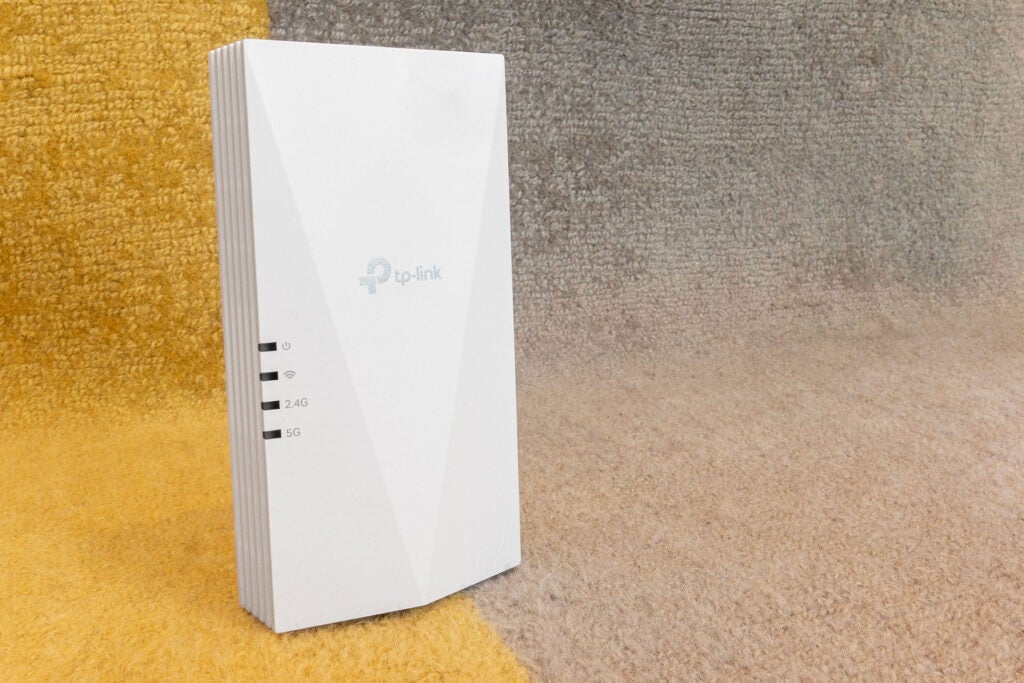
TP-Link RE700X
The best overall Wi-Fi Extender
Pros
- Excellent performance
- Handy Ethernet port
- OneMesh option for easy management
Cons
- Oversized casing
- No mains passthrough
As far as Wi-Fi extenders go, the TP-Link RE700X is one of the most expensive that you can buy. There’s a good reason for this: it’s extremely fast and well worth the cash if you want the best performance and range.
The downside of this model is that it’s big and bulky, and could block the second socket in a double wall socket. There’s also no passthrough.
This model is a Wi-Fi 6 repeater, using one of the latest versions of Wi-Fi. It will work with older Wi-Fi 5 routers, but if you happen to have a newer Wi-Fi 6 model, you’ll get the best out of this model. Its specs include a 2×2 2.4GHz 574Mbps network and a 2×2 5GHz 2402Mbps network.
This extender will work with any router, connecting manually or via WPS. However, if you have a TP-Link OneMesh compatible router, the RE700X will work in mesh mode, making it a neat upgrade.
Performance is excellent. We found that network throughputs in our living room doubled to 218Mbit/s using this extender. It was a similar story around the house, bar in our utility room. Here, the RE700X could only muster 80Mbit/s, although that’s an upgrade from the 12Mbit/s we were getting.
Whether you want to upgrade a TP-Link router to a mesh system or just need the best performance from a Wi-Fi extender, the TP-Link RE700X is the model to buy.
Full review: TP-Link RE700X review
Reviewer: Darien Graham-Smith

Mercusys ME30
The best budget Wi-Fi extender
Pros
- Impressive coverage for the price
- Ethernet port
Cons
- Doesn’t support Wi-Fi 6
- Wired connections are slow
Shockingly affordable, the Mercusys ME30 costs just under £30. This would normally have alarm bells sounding, with the low cost offset by poor performance. While this extender won’t win any throughput awards, it’s fast enough and good enough for basic use.
This model uses the older Wi-Fi 5 standard, rather than the newer Wi-Fi 6 standard. Given that most ISP-provided routers are Wi-Fi 5 models, this is unlikely to make much of a difference to most people.
This extender can be used in repeater mode, although its Ethernet port also lets it act as an access point, hardwired to your router, which is handy if you want Wi-Fi in an outbuilding. In normal extender mode, we found the Mercusys ME30 easy to set up using its web-based management page.
We saw good speed increases using this extender. The best of which came in the bedroom, with our router providing 41Mbit/sec and the Mercusys ME30 upping this to 202Mbit/s. Even in the utility room, which normally gives us 12Mbit/sec, we saw speeds increase to a more usable 50Mbit/s.
If you need to connect a lot of devices to an extender, then something else on this list will do; if you want a cheap way to boost a signal to a slow part of your house, this is a great low-cost choice.
Full review: Mercusys ME30 review
Reviewer: Darien Graham-Smith

Devolo WiFi 6 Repeater 5400
The best Wi-Fi extender for speed
Pros
- Excellent wireless speeds
- Practical design with twin Ethernet ports
- Informative management interface
Cons
- You may be fine with a much cheaper alternative
Most Wi-Fi extenders are built to a price, but the Devolo WiFi 6 Repeater 5400 is built to be fast and reliable. To that end, it uses a different design to most other extenders. Rather than being an all-in-one device that sits in a plug socket, this model is a square router-like box that needs to sit on a table.
That can be useful, as Wi-Fi devices work best when they’re out in the open, rather than being hidden behind furniture or sitting on the floor.
This model has two Gigabit Ethernet ports, which makes it a great choice if you’ve got multiple wired devices that you want to plug in. One port can also be used to hardwire the extender into a router, which is handy if you need to put Wi-Fi into an area a long way from your router, such as an office building.
From the price, you can probably guess that this is a Wi-Fi 6 extender. It’s top-end Wi-Fi 6, too, promising maximum speeds of 4800Mbit/sec throughputs. Real life speeds aren’t that good, but they are impressive. In our kitchen, we saw throughputs jump from 44Mbit/sec to a whopping 279Mbit/sec – the fastest speeds that we’ve seen from an extender.
If you want the extra Ethernet ports and the best overall speed, this is the Wi-Fi extender to buy.
Full review: Devolo WiFi 6 Repeater 5400 review
Reviewer: Darien Graham-Smith

Netgear EAX12 Wi-Fi Range Extender
The best mid-range Wi-Fi extender
Pros
- Improves Wi-Fi speeds over a wide area
- Good range of software features
Cons
- Awkward physical design
There are cheaper Wi-Fi extenders, and there are faster, more expensive models, but the Netgear EAX12 Wi-Fi Range Extender delivers great speeds at a more palatable price, which makes it a good choice for a lot of people.
This model uses Wi-Fi 6, although its throughputs top out at 1200Mbit/sec, rather than the industry-leading 4800Mbit/sec. In practice, this model is fast enough for most uses: in our kitchen, we saw speeds more than double from 44Mbit/sec to 112Mbit/sec, while our utility room jumped from 12Mbit/sec to 49Mbit/sec. In other words, we saw speeds increase to the point where we could watch 4K video in any room.
A simple plug that you connect to a power socket, the Netgear EAX12 Wi-Fi Range Extender is small and easy to connect. It also has a Gigabit Ethernet port, for either a wired device or for hardwiring it to a router.
Netgear’s setup software is slick and easy to use, and includes some extras that not all extenders provide, such as a guest network. Overall, for features, price and performance, the Netgear EAX12 Wi-Fi Range Extender covers all the bases you’ll likely need.
Full review: Netgear EAX12 Wi-Fi Range Extender review
Reviewer: Darien Graham-Smith
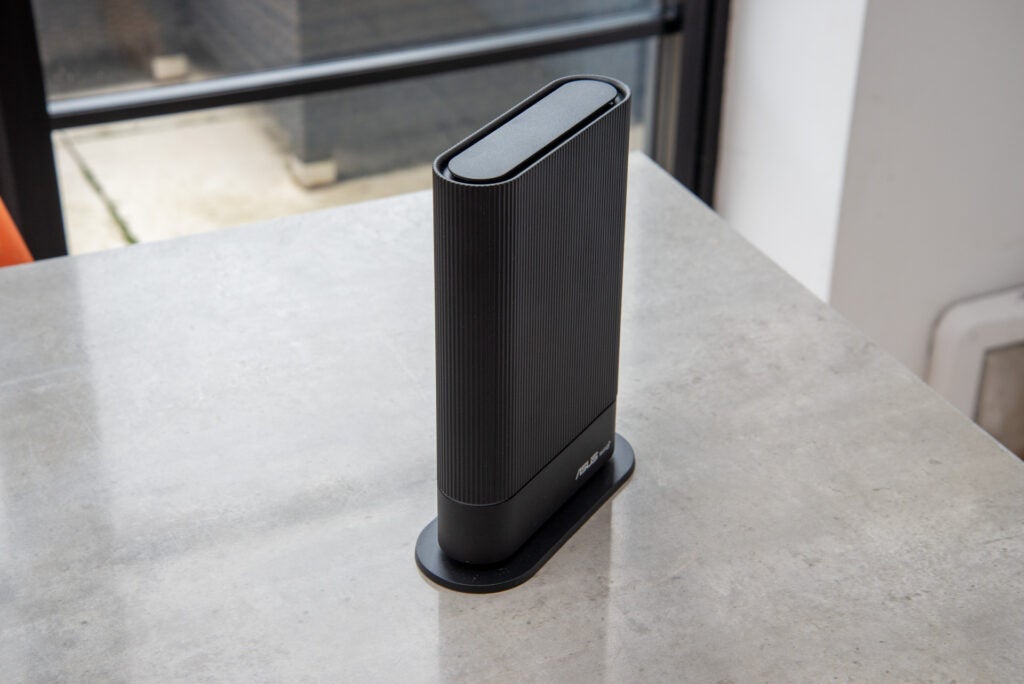
Asus RT-AX59U Extendable Router
Best Wi-Fi extender for Asus routers with AiMesh support
Pros
- Fast
- Wall mountable
- Can be used in a mesh
Cons
- Not ideal for larger homes
We’re cheating a little here, as the Asus RT-AX59U Extendable Router is actually a router, and so can be used as a standalone device rather than an add-on for an existing wireless setup. But we’ve still included it, as Asus has added in the functionality for this router to be used as a wireless extender too, albeit only with Asus routers with the AiMesh feature.
This makes the Asus RT-AX59U Extendable a great choice as an entry-level router, as you’ll later be able to use it as a wireless extender in a mesh system once you’re ready to expand your Wi-Fi coverage. It’s also a great back-up option to have, just in case your main router breaks down.
During our review, we were impressed with the design. It’s small and thin, so shouldn’t prove obtrusive, and can even be mounted to the wall. Performance is excellent too.
But it’s important to remember that the Asus RT-AX59U Extendable Router can only be used as an extender for Asus routers with the AiMesh feature. And even if you do own an Asus router, you may well be better off with a cheaper Wi-Fi Extender if you don’t really need a back-up router.
Full review: Asus RT-AX59U Extendable Router Review
Reviewer: David Ludlow
We also considered…
FAQs
Traditional extenders give you a new wireless network, then connect wirelessly to your router. They’re easy to set up, but you’ll have two networks to manage. A mesh extender works with your existing network, using the same name. They’re more expensive, but a more elegant solution.
Having wired Ethernet ports on your extender lets you plug in devices that don’t have Wi-Fi built-in, or gives a more stable connection when you have a device that has slightly flaky wireless properties.
A Powerline-based Wi-Fi extender works by running data over your home’s mains power, rather than using a wireless connection. Performance can vary hugely between homes, but these devices can work in houses that have thick walls or suffer from a lot of interference.
Wi-Fi 5 (also known as 802.11ac) is a good, well-supported standard, with products available at a decent price. This will likely suit most people, particularly those with older routers. Wi-Fi 6E is the latest standard and can help you upgrade your network in preparation for new wireless devices, but you’ll pay a little more for these devices.
We’ve listed the speeds that manufacturers list, although they’re not indicative of the speeds you’ll actually get, as it’s the connection to your router that governs the overall speed. The newer (and faster) your main router is, the faster the extender that it will take, so use your router’s age as a rough guide.



